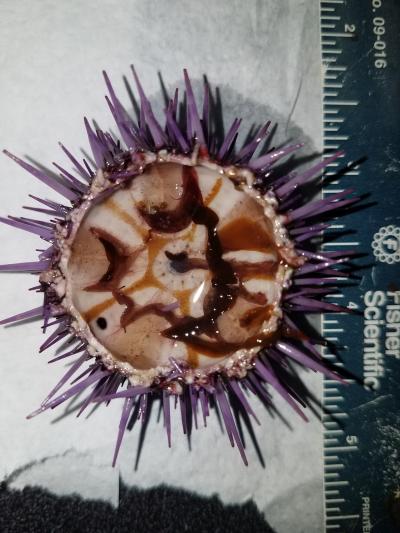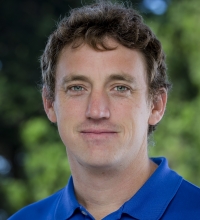In the last ten years, overgrowths of purple sea urchins along the coast of California have led to “urchin barrens” — places where urchins have completely devoured the kelp forest, creating barren habitat akin to a clear-cut forest on land. Because urchins can live for years with little to no food, their presence also prevents the regrowth of kelp forests. Ordinarily, these urchins are prized for their gonads, known as uni, which are used in sushi restaurants, but due to the lack of available food, urchins found in urchin barrens are largely absent of uni. An alternative approach is to harvest the urchins from the wild and feed them in aquaculture tanks on land until the uni can be harvested for sushi. Called “urchin ranching,” this technique has proven successful in Norway, Japan and Canada, but is not yet in practice in the U.S.
In this project, researchers conducted experiments to determine the feasibility of specific aquaculture methods, with the aim of developing a new aquaculture industry for the purple urchin in California. Specifically, purple urchins collected from barrens near San Diego were fed three different diets: whole kelp and two different formulations of algae-based prepared feed. After nine weeks, the urchins receiving prepared feeds produced similar amounts of roe, nearly twice the production of the kelp-fed urchins. Analysis of the amino acids in the roe suggests one feed produced a more desirable flavor profile, while another produced larger roe. There are trade-offs to consider when selecting feed, but the results confirm that wild-caught purple urchins can yield marketable roe in a short time period, potentially producing high-value seafood while offering the opportunity to restore healthy kelp forests.


 Luke Gardner
Luke Gardner